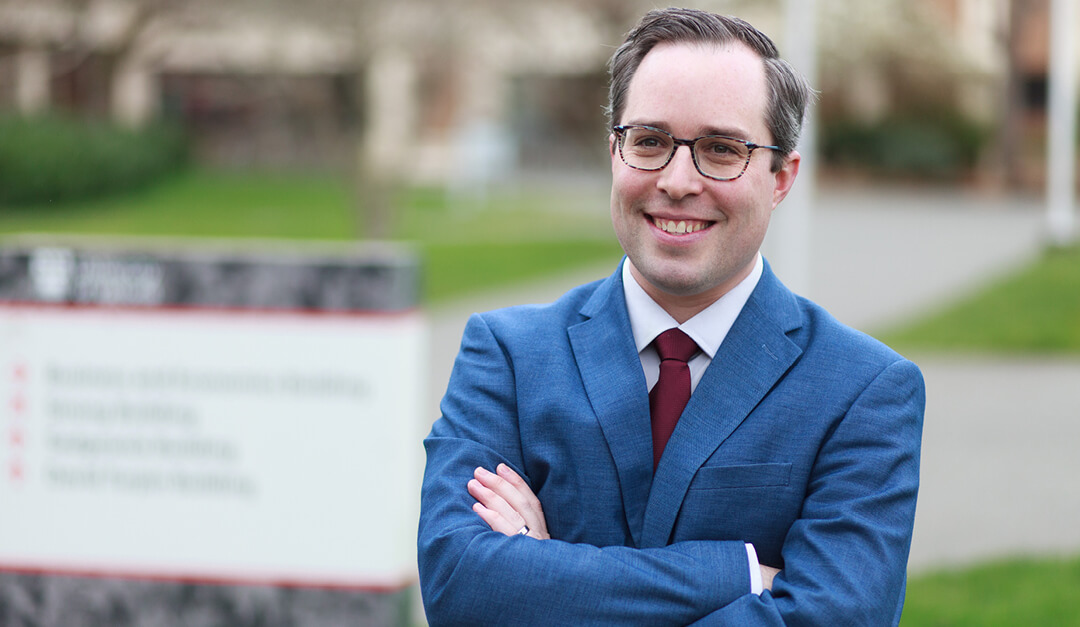Photo credit: Geoff Howe. Originally published in the Spring/Summer 2023 issue of Business Class magazine.
Trevor Israelsen, on of three PhD students to graduate from Gustavson’s Gill Graduate School in June 2023, begins his first academic position this summer, taking on the role of assistant professor of organization theory at the Smeal College of Business at Penn State University.
BUSINESS CLASS: PhDs aren’t for everyone. What prompted you to take this path?
TREVOR ISRAELSEN: My original plan was to become a historian, but I fell in love with the phenomenon of organization—what brings people together to pursue bigger things that they believe are important. I wanted to find ways to explain how people come together to make things that last.
BC: Most of our readers know Gustavson from their experiences as undergraduate or master’s students. What was it like to do your PhD here?
TI: Doing a research-intensive PhD in management studies means you have to learn to compete for publication at a very high level. Many journals receive hundreds of manuscripts each year and publish fewer than six per cent of these. For this reason, it is enormously helpful to work with experienced scholars who know what it takes to succeed in this process. My research and teaching at Gustavson has been sustained by interaction with truly generous and kind people.
BC: What is your central research question?
TI: We live in a time of weakening institutions in which many people experience a diminished sense of community. In this context, we see that most new firms last less than six years, and public corporations that used to last an average of 60 years now have an expected lifespan of less than 20 years. We need to cultivate theories that can help the rising generation of managers to think about how to build things that last. In my view, business schools need to account for the broader historical challenges and opportunities of our age in order for them restore the sense of community in society which is needed for the creation of enduring and adaptive organizations.
BC: What is one practical tip from your research that you might give entrepreneurs about building a business that lasts?
TI: You need to attach your growing business to meaningful stories that define the culture and values of a broader community of stakeholders. To do this takes a tremendous amount of work. You need to think deeply about your values and how they relate to things that were here before you were. If you are a good steward, then your value proposition becomes an authentic expression of—or perhaps even a new way of thinking about—that tradition. Organizations that stand the test of time tend to hold deep meaning for the identity and fabric of a community: they might be long-lived family businesses, religious institutions that carry deep and transcendent stories about the human condition, or iconic corporations that really understand and respect their key stakeholders. Entrepreneurs in these enduring forms of organization are typically less interested in taking advantage of people but, rather, put themselves in a position of being part of a community. They build a sense of permanence in a volatile world.
BC: Our theme this issue is regeneration and regenerative business. Is there any element of your research that touches on this subject?
TI: To me regeneration is simply a way of describing how innovation is most substantive and salutary when it restores essential things from the past. At the Gustavson School of Business, for example, we see regeneration in the context of Indigenous reconciliation where innovation focuses on bringing back traditional practices. In my research I am particularly interested in the regeneration of weakening civic institutions and the role that entrepreneurs and their families play in strengthening (or, some cases, diminishing) the sense of community and cohesion of the societies in which they operate.


